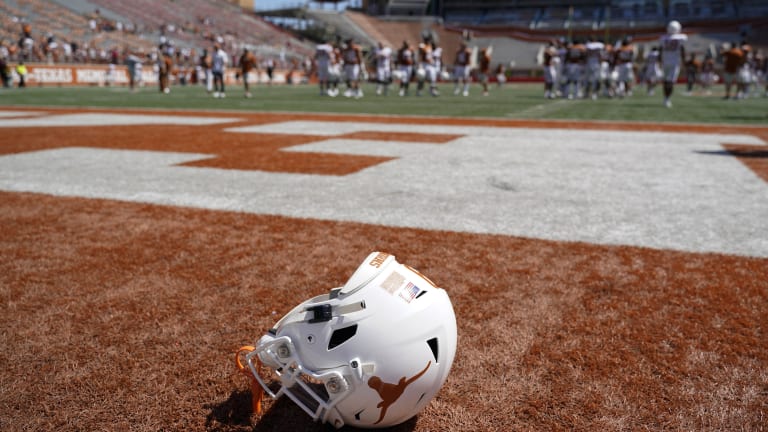
Texas & Oklahoma Remind Us It's a Business. A Very Big Business.

You can spin this any way you want. From where I sit, it’s wrong. And it smells. Actually, if you care about college football, it gives off a really bad odor.
Oklahoma and Texas going to the Southeastern Conference may be part of some grand power-and-money scheme to rule college football. Actually, there’s no question that it’s part of some grand power-and-money scheme to rule college football.
This changes the sport. And not for the better.
As unprecedented and eye-popping as it seems, this blatant acknowledgement that sports is a business is nothing new.
It happened in the long-ago past of college football, when Harvard, Yale and Princeton—the Ivy League schools that once ruled the money-and-championship roost—thought it was no longer in line with their goals. The University of Chicago reached the same conclusion. Fordham, St. Mary’s of California and a host of other institutions that were important gridiron competitors also threw in the football towel.
And gradually the so-called sport of college football became the Big Business that it is today.
That said, this feels different. Because we live in it, it’s in Technicolor or HD or 3-D. Or virtual reality.
This is different. Because it’s so blatant.
The ACC raiding the Big East was nasty. But it wasn't two Top 10 programs like Texas and Oklahoma.
The line is blurring between those two great SECs: The one that plays football. And the Securities and Exchange Commission, which was created ``to enforce the law against market manipulation.'' . . . And how ironic is that?
I don’t have a dog in this hunt. It wouldn't bother me if the Big Ten said, ``We'll just play our own little game,'' and maybe invited the Pac-12 to join its own little college-football world.
But the devastation in places like Stillwater, Oklahoma, and Ames, Iowa, and Manhattan, Kansas, must be pretty thorough for the most loyal and die-hard fans.
I imagine it was the same when the Dodgers left Brooklyn and the Giants left New York. When the Braves left Milwaukee. When the Colts left Baltimore and the Browns left Cleveland.
Then, as now, the spin-meisters will tell you what a great thing these changes are for the sport. How inevitable they are. And yada yada.
But we all know this is the greatest American sport. . . the pursuit of the dollar.
There was a great line in North Dallas Forty, a long-ago movie about the NFL: “Every time I call it a business, you call it a game! And every time I call it a game, you call it a business!”
This new conglomerate, the SEC Inc., trumpets that it is a business. You can enjoy it all you want on Saturday. But it’s all about the money.
As Traffic, a marvelous long-ago band, once sang, ``And the man in the suit has just bought a new car . . .From the profit he's made on your dreams.’’
Maybe this works for you, this tanks-on-the-ground establishing new worlds of sports. If you’re younger and follow the right teams, you might even be excited about it.
It is going to take me a while, I suspect, before I can tune in a game between SEC marauders. No matter how well they play—and they will play exceedingly well—it will be in the back of my mind that the conference has diminished the game with its Wall Street-like acquisition mania.
To be honest, my interest in college football has been on the wane for a while, certainly since Alabama and Clemson started ruling with an iron fist. The rise of Ohio State clutching the Big Ten by the throat has boosted that decline in interest.
The other thing is, the genuine hatred that college football generates is becoming more and more of a turnoff. An Alabama fan poisoning trees at Auburn? Texas being so selfish and arrogant that Texas A&M would forsake its heritage and throw in with the SEC? Ohio State and Michigan joyously kicking each other when they’re down?
It’s probably just me. But it’s getting to be over the top.
The reason I was drawn to sports in the first place was competition—and the exceptional athletic moments that are a product of that competition.
When that competition is reined in by financial realities and regulations that basically limit that competition to a chosen few, the natural joy and sports artistry feel orchestrated. It’s a game that is very much a business.
And when you take that to the ultimate level, you have. . . the SEC Inc.